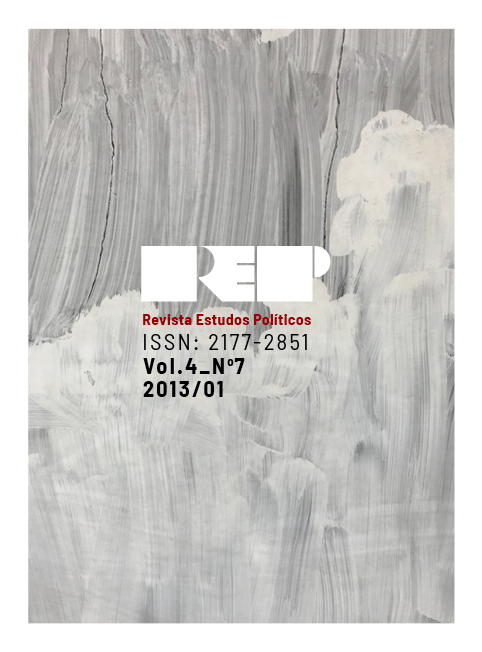Two types of liberalism in the National Democratic Union (UDN): Afonso Arinos and Lacerda between consensus and conflict
DOI :
https://doi.org/10.22409/rep.v4i7.40299Mots-clés :
UDN, liberalism, Afonso Arinos, Carlos Lacerda.Résumé
Udenistic liberalism did not limit itself to the scope of Parliament or Executive proceedings, but rather helped construct a broad spectrum of reflections about Brazil. In this manner, it is possible to refer to different types of udenism as specific veins in Brazil’s liberal tradition. This article seeks to establish some distinctions within this tradition, focusing on the discussion of two particular veins, each of which is deeply identified with two great personalities of the time: Afonso Arinos de Melo Franco and Carlos Lacerda. These veins are differentiated mainly by two points: how conflict is perceived and the role attributed to the elite in political dispute. In this manner, there is pedagogical udenism, which views conflict in a negative light and assigns a mediating role to the elite. This is the viewpoint represented by Afonso Arinos. Conflictive udenism, on the other hand, involves the elite in political struggles and considers confrontation with the enemy to be the essence of political dispute. This is the viewpoint championed by Carlos Lacerda.Téléchargements
Téléchargements
Publiée
Numéro
Rubrique
Licence
Para submeter um manuscrito, os autores devem realizar o cadastro na plataforma, fornecer os dados solicitados e seguir as orientações recomendadas. Para tanto, será necessário apresentar o número da identidade de pesquisador. Para obtê-lo, é necessário realizar o cadastro na plataforma Open Researcher and Contributor ID (ORCID).
Ao submeter um manuscrito, os autores declaram sua propriedade intelectual sobre o texto e se comprometem com todas as práticas legais relativas à autoria. A submissão implica, ainda, na autorização plena, irrevogável e gratuita de sua publicação na REP, a qual se responsabiliza pela menção da autoria.
A REP tem acesso aberto e não cobra pelo acesso aos artigos.
Orientando-se pelo princípio de que tornar público e disponibilizar gratuitamente o conhecimento científico contribui para a democratização mundial do conhecimento, a REP adota a política de acesso livre e imediato ao seu conteúdo.
No mesmo sentido, a REP utiliza a licença CC-BY, Creative Commons, a qual autoriza que terceiros distribuam, remixem, adaptem e criem a partir do trabalho, inclusive para fins comerciais, desde que se reconheça e torne público o crédito da criação original.
Para mais informações, contatar a editora através do e-mail revistaestudospoliticos@gmail.com


